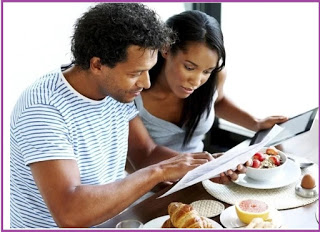Computation of Sole Proprietor’s Tax Liability in Nigeria – Computation of Sole Proprietor’s Tax Liability in Nigeria therefore is related to tax types in Nigeria. Those concerned are small businesses, individual personal income tax that relates to taxation of sole proprietorship in Nigeria. In fact, tax payment via the relevant tax authorities in Nigeria. Our concern here is how to help you the Sole trader understand PIT (Personal Income Tax) computation procedure and possibly get to know how to do it by yourself.
The Focus
Table of Contents
As a matter of fact, this post focuses on educating the sole proprietor on his/her PIT matters. It’s also of great help to students of Accounting and Taxation. In fact, it’s also aimed at helping those who work for the Sole Proprietor understand the tax implications of their behaviours in relation to the management of the business expenses and fixed assets. Therefore, if you need further explanations, please don’t hesitate to send mail through cfmclimited@gmail.com. We will be glad to help. We can also handle your tax assignments if you allow us to do so.
Computation of Sole Proprietor’s Tax Liability in Nigeria – Preceding Year Basis
Furthermore, Computation of Sole Proprietor’s Tax Liability in Nigeria as explained so far, is about how to calculate Sole Proprietor’s personal income tax in Nigeria. Then, give highlights on its provisions on the Personal Income Tax Act in Nigeria and Nigerian tax rates.
In the first place, you have to know that the taxation of a sole proprietor/trader will arise on preceding year basis. That means, the tax for 2019 business year is paid in 2020.
Who is Concerned:
Secondly, understand also that the sole proprietor includes merchants, market women. Men who run their business activities in Alaba Market, Asaba Market, Maiduguri central market etc.,. Sole service providers like the legal professional who run a law chamber, a Chartered Accountant who runs an Accounting firm. Others, are Architects who runs a studio.
However, one common feature about all of these is that they all registered with Corporate Affairs Commission (CAC) in their private/individual capacities. So they all fall under the regulations of the Personal Income Tax Act in Nigeria which is in itself under the purview of State Internal Renenue Service.
Business Audited Account:
Thirdly, you have to note that in computing the tax liability of a Sole Proprietor, the audited financial statement is to be considered so as to examine whether or not the expenses included are allowable for tax purposes. Unfortunately, this group of business men and women are not mandated to publish financial statements as the Limited Liability companies do. In fact, many of them are not even registered with CAC. But, proper accounting and taxation procedures are also taken to ascertain their tax indebtedness. Because, they should still pay their taxes.
Computation of Sole Proprietor’s Tax Liability in Nigeria – Allowable Expenses
The forth thing to note is that, the allowable expenses must comply with these accounting and taxation axioms. They must be Wholly, Reasonable, Exclusive and Necessary. What do we mean by these?
- For an expense to qualify as tax allowable business expense it must be proved that it’s wholly, entirely, for the business. Remember that for a Sole Proprietor all personal and family expenses are regarded as Drawings. That is to say, you just spent part of your profit as you like. Therefore, it may not matter if you made gifts to your Associations, Church, Mosque, Club etc. You have just had some Drawings. So you see, they are not part of your business expenses.
- On reasonability of your business expenses. Your business expenses must be reasonable in relation to your business and transaction. Now think about this. ‘if you spend N20,000.00 to transport a business item worth N5,000.00 which you will eventually sell for N7,000.00, is that a reasonable business expense?’
- Furthermore, on exclusiveness of business expense, it must be ascertained that such expense is incurred only for the business. If you have two business outfits, you should be able to distinguish their associated expenses.
- Again, such expense must be very necessary to run the business and generate income. Any expense that enables you make more money is necessary. While those that don’t are not necessary.
Computation of Sole Proprietor’s Tax Liability in Nigeria – Step-by-Step Calculation
The Fifth thing we are to consider here now, are the steps you should follow to compute your tax liability.
It’s necessary you follow the following steps.
1. Ascertain your gross income – and adjust this as follows.
2. Non- allowable expenses and taxable incomes not previously reported are added back
3. Non-taxable incomes and allowable expenses not previously reported are to be deducted to arrive at the Adjusted Profit.
4. Balancing charge, if any, is then added to the adjusted profit and the losses brought forward are now deducted;
5. Capital allowance is now deducted to arrive at the total or taxable profit
6. Now identify all other sources of earned income and add them
7. Now determine and sum the total earned income
8. Then identify all unearned incomes e.g rent if you are a landlord, dividends received etc, sum them up and add; – this must be reported gross of WHT (withholding tax)
Furthermore, are;
9. Now sum up all of these to give you the statutory total income
10. Again, now identify the general charges and deduct from step 9;
11. It’s time now to determine or work out and deduct all relief due to your person ( consolidate Relief Allowance) , to get the chargeable or taxable profit/income,
12. Now apply the relevant tax rate at the relevant income slab to the figure generated in item No. 11 to derive your tax position in Naira/Dollar value. Transaction currency is what is always applicable in tax computation.

Be Tax compliance, check out the following @ Computation of Sole Proprietor’s Tax Liability in Nigeria:
Sole Proprietor & Partnership Tax Conditions in Nigeria
Facts You need to Know About Sole Trader’s Tax liability
How do I work out my taxable income in Nigeria?
How companies get their TCC
How Start-ups Get TIN
Business Initial TCC
How to Apply for Company Annual Tax Return Riling
How to Obtain Individual Tax Clearance Certificates
Individual Annual Tax Returns & TCC
Track Your With-holding Tax Credits
Conclusion:
Frankly speaking, I have enjoyed this post, Computation of Sole Proprietor’s Tax Liability in Nigeria.
As a matter of fact, this is because most of us are affected. I know you enjoyed it better than I did. Would you please follow these steps and do it yourself or send a mail across to Complete Full Marks Consultants Limited at cfmclimited@gmail.com. or 08034347851
And please, help us share this using our social media buttons on this page to reach your contacts. This could help them too.

Deacon Anekperechi Nworgu, a seasoned economist who transitioned into a chartered accountant, auditor, tax practitioner, and business consultant, brings with him a wealth of industry expertise spanning over 37 years.


